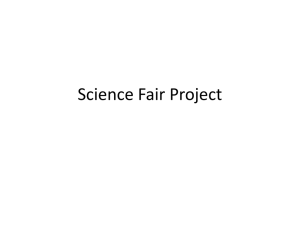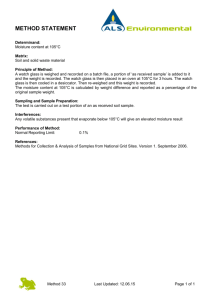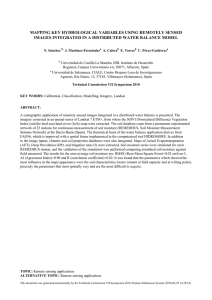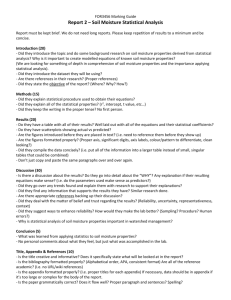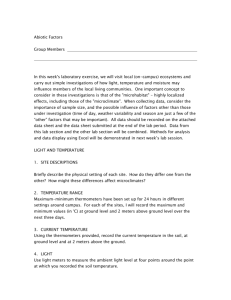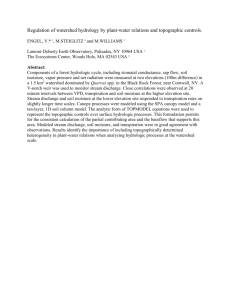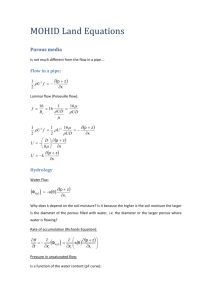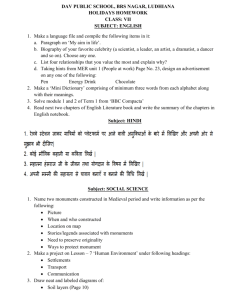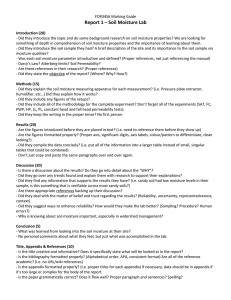Assignment for Soil Invertebrate Study
advertisement
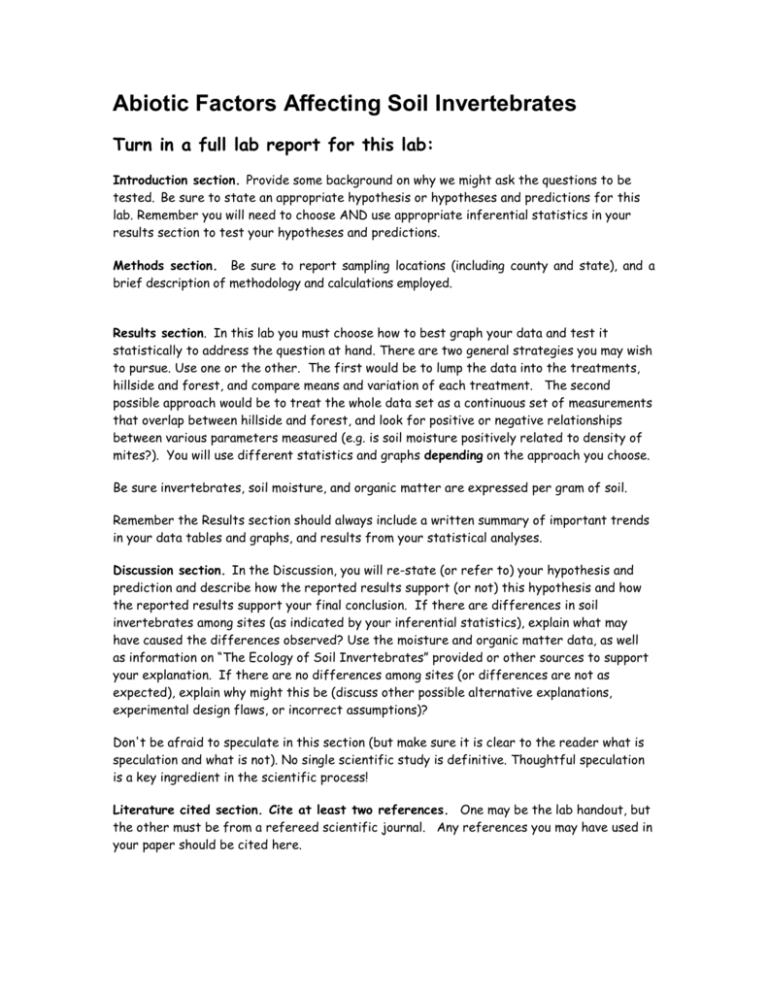
Abiotic Factors Affecting Soil Invertebrates Turn in a full lab report for this lab: Introduction section. Provide some background on why we might ask the questions to be tested. Be sure to state an appropriate hypothesis or hypotheses and predictions for this lab. Remember you will need to choose AND use appropriate inferential statistics in your results section to test your hypotheses and predictions. Methods section. Be sure to report sampling locations (including county and state), and a brief description of methodology and calculations employed. Results section. In this lab you must choose how to best graph your data and test it statistically to address the question at hand. There are two general strategies you may wish to pursue. Use one or the other. The first would be to lump the data into the treatments, hillside and forest, and compare means and variation of each treatment. The second possible approach would be to treat the whole data set as a continuous set of measurements that overlap between hillside and forest, and look for positive or negative relationships between various parameters measured (e.g. is soil moisture positively related to density of mites?). You will use different statistics and graphs depending on the approach you choose. Be sure invertebrates, soil moisture, and organic matter are expressed per gram of soil. Remember the Results section should always include a written summary of important trends in your data tables and graphs, and results from your statistical analyses. Discussion section. In the Discussion, you will re-state (or refer to) your hypothesis and prediction and describe how the reported results support (or not) this hypothesis and how the reported results support your final conclusion. If there are differences in soil invertebrates among sites (as indicated by your inferential statistics), explain what may have caused the differences observed? Use the moisture and organic matter data, as well as information on “The Ecology of Soil Invertebrates” provided or other sources to support your explanation. If there are no differences among sites (or differences are not as expected), explain why might this be (discuss other possible alternative explanations, experimental design flaws, or incorrect assumptions)? Don't be afraid to speculate in this section (but make sure it is clear to the reader what is speculation and what is not). No single scientific study is definitive. Thoughtful speculation is a key ingredient in the scientific process! Literature cited section. Cite at least two references. One may be the lab handout, but the other must be from a refereed scientific journal. Any references you may have used in your paper should be cited here. For help on how to write a lab report: http://science.kennesaw.edu/~jdirnber/limno/labguide.html http://abacus.bates.edu/~ganderso/biology/resources/writing/HTWsections.html
